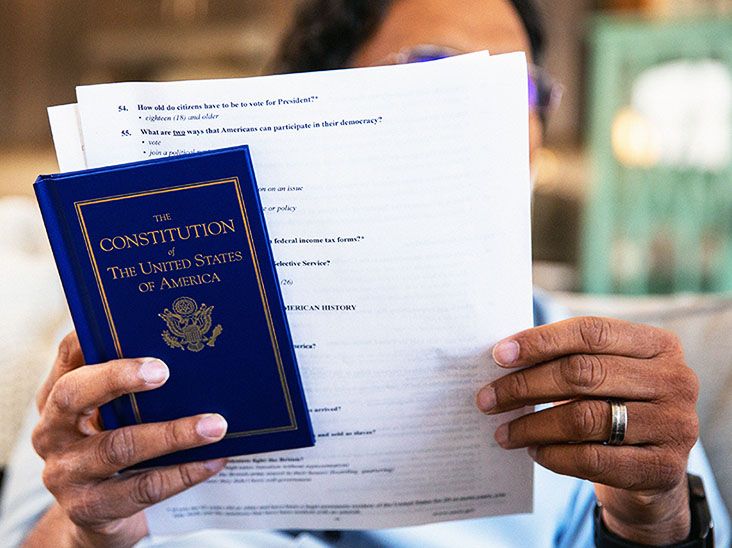Hey there! If you're reading this, chances are you or someone you love is navigating that big chapter we all come to retirement healthcare decisions. Let me tell you right off the bat: you're not alone, and despite what some might say, this doesn't have to be stressful or confusing.
Picture this: you're sipping coffee in your kitchen, looking at Medicare paperwork scattered across the table. Your head's probably spinning with terms like "Part A," "Medicare Advantage," and wondering if your neighbor's advice actually applies to your situation. Here's the thing Rhode Island has some unique twists when it comes to Medicare, and I'm here to walk you through exactly what matters to real people in our state.
Rhode Island Medicare Basics
Let's start with the fundamentals. In Rhode Island, just like everywhere else in the country, you've got two main paths when it comes to Medicare: Original Medicare or Medicare Advantage. Think of it like choosing between a reliable sedan and a feature-packed SUV both will get you where you're going, but the experience is quite different.
Original Medicare consists of Part A (hospital insurance) and Part B (medical insurance). Most folks get Part A automatically when they turn 65, but Part B requires enrollment and comes with a standard premium of about $174 per month in 2024. It covers doctor visits, preventive care, and outpatient services.
Then there's Part D prescription drug coverage. Trust me, don't skip this one. Even if you're not taking many medications now, getting Part D early can save you from some steep penalties down the road. Rhode Island offers several Part D plans through providers like Blue Cross & Blue Shield of Rhode Island, and yes we'll dive into what makes a good plan for you specifically.
Unique Rhode Island Challenges
Now, let's talk about what makes our little state special (in a Medicare kind of way). You might have heard about the UnitedHealthcare situation that hit Rhode Island pretty hard in 2024. Suddenly, people found their favorite doctors and hospitals were no longer in-network. That's scary stuff, I know.
But here's the silver lining Rhode Island residents affected by these changes may qualify for something called a Special Enrollment Period. This means you can switch plans outside the normal enrollment window, which is huge if you've been stuck with limited provider choices.
Another Rhode Island-specific program worth knowing about is the Medicare Premium Payment Program. If your income is modest, you might qualify for help paying your Medicare premiums through programs like QMB (Qualified Medicare Beneficiary), SLMB (Specified Low-Income Medicare Beneficiary), or QI (Qualified Individual). These aren't just acronyms they're potential lifelines that could save you hundreds each month.
Original Medicare in Rhode Island
Let's say you value flexibility and straightforward coverage. Original Medicare might be your sweet spot. The beauty of Original Medicare is its simplicity you can see virtually any doctor or hospital that accepts Medicare anywhere in the country. No need for referrals to see specialists, which is music to many people's ears.
However, there's a catch (isn't there always?). Original Medicare doesn't cover prescription drugs that's where Part D comes in. Also, there's no annual out-of-pocket maximum, meaning if you have extensive medical needs, costs can add up quickly.
I spoke with Mary from Cranston who's been on Original Medicare for five years. She told me, "I love that I never have to worry about whether my cardiologist is in-network. But I do budget carefully for those times when I need multiple procedures in a year."
Medicare Advantage in Rhode Island
If Original Medicare feels too bare-bones, Medicare Advantage plans bundle your Part A and B coverage with often include Part D prescription coverage and extras like dental, vision, and hearing benefits. In Rhode Island, major players include Blue Cross & Blue Shield, Aetna, and several plans from UnitedHealthcare (despite the recent network issues).
Many Rhode Islanders love the "all-in-one" nature of Medicare Advantage. You get your regular medical care, prescription coverage, and often perks like SilverSneakers gym memberships or transportation benefits. Some 2024 plans even offer $0 preventive dental coverage not bad for an extra layer of wellness support.
But remember that story about network restrictions I mentioned earlier? That's where Medicare Advantage can get tricky. My friend Tom from Warwick learned this the hard way when his longtime gastroenterologist suddenly wasn't covered anymore. The solution? He switched to a different Medicare Advantage plan during that special enrollment period we talked about, but it took some detective work.
Understanding Your Costs
Let's be honest cost is probably front of mind for most of us. The good news is that Rhode Island offers several programs to help make Medicare more affordable for those who qualify.
Beyond the standard Part B premium, you'll face deductibles and copays. For 2024, the Part B deductible is $240. After that, you typically pay 20% of Medicare-approved amounts for most services. That might sound manageable, but if you need significant care, those costs can pile up without a cap.
This is where I encourage you to explore the Medicare Savings Programs I mentioned earlier. For example, if you're single and your income is below about $1,230 per month in 2024, you might qualify for QMB, which covers both your Part A and Part B premiums, plus reduces out-of-pocket costs.
Applying is simpler than you might think you can do it online through the Rhode Island Department of Human Services or give them a call at 1-855-697-4347. Talk about making healthcare more accessible!
Real Stories, Real Solutions
Sometimes the best guidance comes from hearing how others navigated similar challenges. Remember Mary from Cranston I mentioned earlier? After three years with Original Medicare, she recently switched to a Medicare Advantage plan not because she was dissatisfied, but because she realized she could get better prescription coverage and dental benefits for about the same monthly cost.
"The hardest part," she admitted, "was making sure all my doctors were still covered. I literally called each one to double-check before I made the change."
Then there's the Martinez family in Pawtucket. When Robert's wife Elena needed extensive physical therapy after a fall, they were grateful their Medicare Advantage plan included transportation benefits. "Getting to appointments was becoming a burden for our whole family," Robert explained. "Having that covered made a huge difference in her recovery and our stress levels."
Making Smart Comparisons
Choosing between Medicare options isn't like picking cereal at the grocery store this decision affects your health, wallet, and peace of mind. So how do you make the right choice?
Start by making two lists: your current doctors and medications. This sounds simple, but it's absolutely crucial. You'd be surprised how many people forget about that blood pressure medication they only take occasionally or that dermatologist they see once a year.
Next, use the official Medicare Plan Finder tool on Medicare.gov. It's not glamorous, but it's incredibly thorough. Enter your zip code, doctors, and medications, and it'll show you exactly which plans cover what in your area.
Pay attention to Star Ratings these are like report cards for Medicare plans. In Rhode Island, Blue Cross & Blue Shield of Rhode Island's Duals plan, for instance, consistently earns high marks for member satisfaction.
Avoiding Common Mistakes
Having worked with Medicare beneficiaries for years, I've seen the same missteps happen again and again. Let me save you some headaches:
First mistake: Enrolling too early. If you have employer coverage, you might not need to sign up for Part B at 65. In fact, signing up early could cost you more later. Check with your HR department first!
Second: Forgetting about formularies. Just because a plan says it covers prescription drugs doesn't mean it covers YOUR specific prescriptions. Always double-check the drug list (called a formulary) before enrolling.
Third: Not verifying doctors are still in-network. Networks change, especially with recent disruptions. Call your doctors directly and ask if they accept the specific Medicare plan you're considering.
Your Next Steps
Here's what I want you to take away from all of this: Rhode Island Medicare isn't just about choosing a plan it's about crafting healthcare coverage that fits your life, your family, and your budget.
Whether you're drawn to the straightforward reliability of Original Medicare or the added benefits of Medicare Advantage, the key is understanding exactly what you're getting. Don't let anyone (including well-meaning friends) pressure you into a decision that doesn't feel right.
Take some time with this information. Talk to your doctors. Maybe chat with family members who've already navigated this process. And if you're still feeling uncertain, Rhode Island has excellent resources local Senior Centers often host Medicare counseling sessions where you can get personalized, unbiased advice.
Remember, you're not just choosing a healthcare plan you're selecting peace of mind for the next chapter of your life. That's worth taking the time to get right.
What aspects of Medicare in Rhode Island are you still curious about? Have you encountered any of the network challenges I mentioned with UnitedHealthcare? Feel free to share your questions or experiences we're all learning together, and your insights could really help others in similar situations.
FAQs
What is the difference between Original Medicare and Medicare Advantage in Rhode Island?
Original Medicare offers nationwide coverage with more flexibility but doesn’t include prescription drug coverage or an annual out-of-pocket maximum. Medicare Advantage plans are offered by private insurers and often bundle Part A, B, and D with added benefits like dental, vision, and gym memberships, but may limit you to in-network providers.
Are there extra help programs for Medicare costs in Rhode Island?
Yes, Rhode Island offers Medicare Savings Programs such as QMB, SLMB, and QI for those with limited income. These programs can help cover Part A and B premiums, deductibles, copayments, and coinsurance.
Can I switch Medicare plans if my doctor is no longer in-network?
If network changes affect your care, you may qualify for a Special Enrollment Period. This allows you to switch plans outside the usual enrollment window to ensure continued access to your preferred doctors and hospitals.
When should I enroll in Part B if I’m still working at 65?
If you have employer-sponsored health coverage, you might be able to delay Part B enrollment without penalty. Check with your HR department first, as signing up too early could result in higher premiums later.
Does Medicare in Rhode Island cover prescription drugs?
Original Medicare does not include prescription drug coverage, so you’ll need a separate Part D plan. Many Medicare Advantage plans, however, do include prescription drug coverage as part of their benefits package.
Disclaimer: This article is for informational purposes only and does not constitute medical advice. Always consult with a healthcare professional before starting any new treatment regimen.
Related Coverage
Find the best Medicare Advantage plan for 2025 by checking your doctors, prescriptions, costs, and benefits for a perfect fit....
Learn if you qualify for Medicare with a green card. Understand work history, residency rules, and how to enroll in Medicare as a permanent resident....
Learn how to get and use your Medicare OTC card for free health and wellness items....
Aging in place lets you stay in your home safely with the right planning, support, and simple modifications. Start your journey today....
Stay safe with medication safety for seniors. Get practical tips to manage prescriptions, avoid interactions, and protect your health....
Explore the most common health challenges facing senior citizens and learn effective strategies for managing age-related conditions and maintaining well-being as you get older....
Learn how Medicare rollator walkers are covered, who qualifies, required documents, costs, and how to choose a provider....
Secondary aging is influenced by lifestyle and health choices. Learn how to slow it down and age healthier....
Cats can provide companionship, mental stimulation, and comfort for seniors with dementia. Learn how cats benefit dementia patients and tips for integrating a feline companion....
Family caregivers need real support. Find resources, respite care, and ways to get paid while caring for loved ones....









